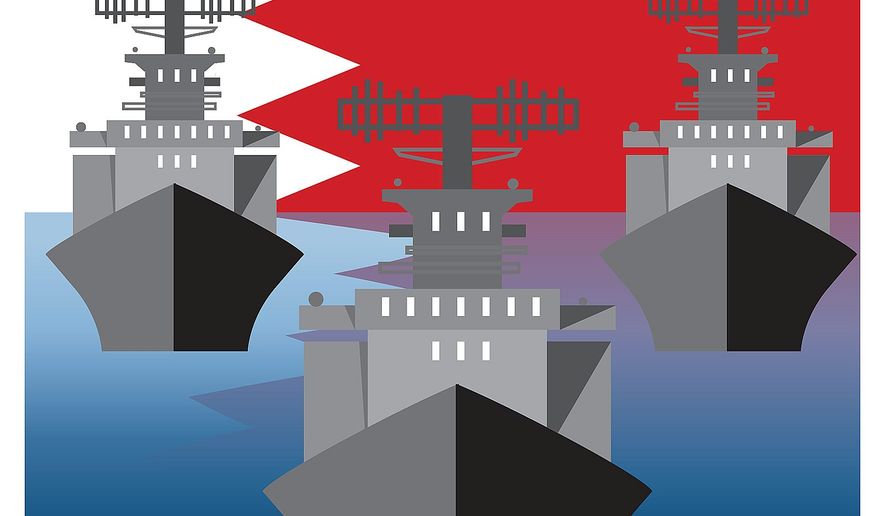OPINION:
The Kingdom of Bahrain is an important U.S. ally in the fight to combat terrorism. We oppose Iranian regime aggression and work with our partners to maintain the free-flowing exchange of goods worldwide. That is why Bahrain is hosting a highly anticipated international maritime security summit later this month in which its partners will further strengthen their capacity to support peace and security in the Arabian Gulf and in the rest of the world.
Originally announced in Washington on July 17 by Bahraini Foreign Minister Sheikh Khalid bin Ahmed al Khalifa and U.S. Special Representative for Iran Brian Hook, Bahrain’s Oct. 21-22 international maritime security summit will coincide with the first two days of the world’s largest maritime exercise, U.S. Naval Forces Central Command’s International Maritime Exercise (IMX) 19.
The United States has described the exercise as “the world’s most inclusive maritime exercise, designed to strengthen relationships, foster interoperability among supporting forces, and enhance theater-wide maritime security operations.” The purpose of the event, according to the Navy, is that “by working together as a coalition, all nations build familiarity with global partners and the shipping industry, with the goal of deterring threats to the freedom of navigation.”
The kingdom is home to thousands of U.S. military personnel and their families, including, for the last quarter century, the U.S. Navy’s Fifth Fleet and Marine Forces Central Command. These U.S. personnel see firsthand that Bahrain is a beacon of stability and strength in an otherwise unpredictable and tumultuous region. Indeed, Bahrain has long been praised for our leadership in supporting international coalitions, especially those working in partnership with the U.S. to protect Gulf shipping and to contain the dangerous Iranian regime.
Bahrain’s international maritime summit will convene many of the world’s leading maritime forces — similar to February’s Warsaw Summit that included more than 60 countries — to promote freedom of navigation and the free flow of maritime commerce as well as the detection of threats emanating from an increasingly belligerent Iranian government.
Such an alliance could not come at a more crucial time. Recent attacks along key maritime transit routes in the Gulf — specifically in the vital Strait of Hormuz — have undermined the safety of international navigation and created instability in the region. Likewise, last month’s attack on oil facilities in neighboring Saudi Arabia sent shockwaves throughout the world, causing oil prices to spike. Taken together, what we see is not just a series of isolated events or individual attacks, but rather a larger, concerted effort by a hostile power to sew discord and wreak havoc worldwide.
While the people of Bahrain personally understand the threats of an aggressive Iranian regime, they, like President Trump and Secretary of State Mike Pompeo, know it is important to distinguish between the Iranian regime and the Iranian people. It is our belief that the Iranian people deserve a better quality of life and better governors.
Last month, the U.S. Congress approved a large arms sale to Bahrain. This was not a surprise. The United States designated Bahrain a Major Non-NATO Ally in 2002 and Bahraini forces have long supported the International Security Assistance Force in Afghanistan. Bahrain was the first Arab state to lead a Coalition Task Force patrolling the Gulf.
To that end, Bahrain will continue to be a key player in the Gulf for like-minded coalition members and other open-minded governments. We will host more constructive conversations and continue to create alliances against terrorists and those who support them. Bahrain is proud of its history and its commitment to security in the Gulf region and beyond. The upcoming international maritime security summit is just the latest example and won’t be the last.
• H.E. Abdulla Bin Rashid Al Khalifa is the ambassador of the Kingdom of Bahrain to the United States.




Please read our comment policy before commenting.